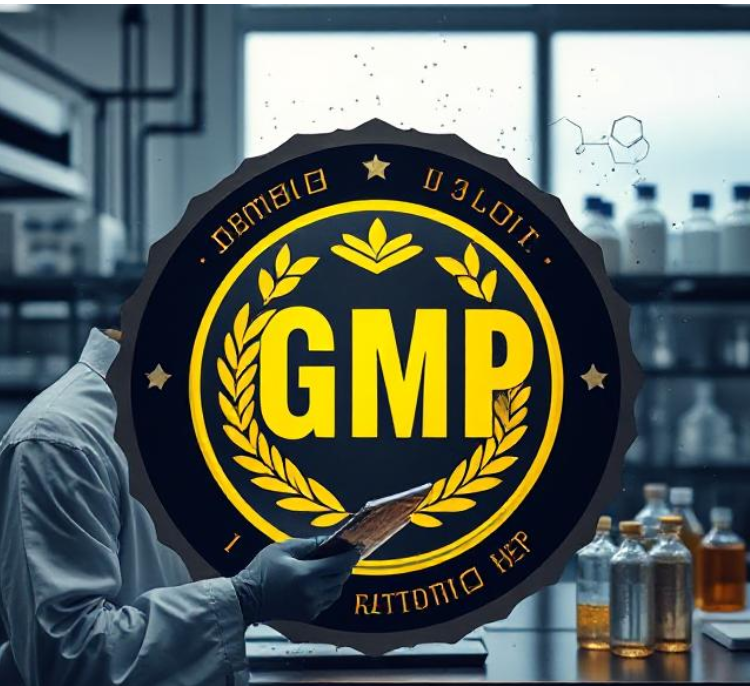Why GMP Training Isn’t Just a Checkbox
Let’s be real—no one wakes up excited about compliance training. But when it comes to GMP, it’s not about ticking boxes; it’s about protecting lives. Whether you’re in pharma, food, cosmetics, or supplements, GMP training is the backbone of safe, consistent, and compliant production.
Think of GMP as the hygiene of manufacturing. You wouldn’t serve food without washing your hands, right? Similarly, you shouldn’t ship a product without ensuring it’s been made under controlled, documented, and validated conditions.
What Exactly Is GMP?
GMP stands for Good Manufacturing Practice—a globally recognized system that ensures products are consistently produced and controlled according to quality standards. It’s enforced by regulatory bodies like the FDA (U.S.), EMA (Europe), and WHO (global) to prevent contamination, mix-ups, and errors.
GMP covers everything from the cleanliness of your facility to the training of your staff, the validation of your processes, and the traceability of your products. It’s not just about making a good product—it’s about making it the same way, every time.
The Real-World Impact of GMP Training
Investing in GMP training has tangible benefits:
- Enhanced Product Quality and Safety: Training ensures that everyone understands their role in maintaining quality, reducing the risk of errors and contamination.
- Regulatory Compliance: Well-trained staff are more likely to adhere to protocols, making audits smoother and reducing the risk of non-compliance penalties.
- Operational Efficiency: Understanding GMP principles can streamline processes, reduce waste, and improve overall productivity.
Who Needs GMP Training?
If your role touches any part of the manufacturing process, GMP training is for you. This includes:
- Production Staff: Operators, supervisors, and managers who oversee the manufacturing process.
- Quality Assurance and Control Personnel: Those responsible for ensuring product quality and compliance.
- Maintenance and Engineering Teams: Staff who maintain equipment and facilities.
- Supply Chain and Logistics: Individuals involved in sourcing, storage, and distribution.
- Regulatory Affairs Professionals: Those who liaise with regulatory bodies and ensure compliance.
Choosing the Right GMP Training Program
Not all training programs are created equal. When selecting a GMP training course, consider:
- Accreditation: Ensure the program is recognized by relevant regulatory bodies.
- Content Relevance: The curriculum should be up-to-date with current regulations and industry practices.
- Flexibility: Look for programs that offer online or self-paced options to fit your schedule.
- Practical Application: Courses should include real-world scenarios and case studies.
- Assessment and Certification: A final assessment helps gauge understanding, and certification provides proof of competence.
For instance, CDG offers a Certified Pharmaceutical GMP Professional course that covers global GMP standards, regulatory requirements, and quality maintenance practices.
Implementing GMP Training in Your Organization
To effectively integrate GMP training:
- Assess Training Needs: Identify which employees require training and at what level.
- Develop a Training Plan: Outline objectives, timelines, and resources needed.
- Choose Appropriate Programs: Select training that aligns with your industry and regulatory requirements.
- Monitor Progress: Track employee participation and comprehension.
- Evaluate Effectiveness: Regularly review training outcomes and make necessary adjustments.
Remember, training is not a one-time event but an ongoing process. Regular refresher courses help keep knowledge current and reinforce best practices.
Overcoming Common Training Challenges
Implementing GMP training can come with hurdles:
- Resource Constraints: Limited time or budgets may restrict training opportunities. Solution: Utilize e-learning platforms and prioritize high-impact training topics.
- Keeping Content Updated: Regulatory changes can make training materials outdated. Solution: Regularly review and update training content to reflect the latest GMP guidelines.
- Engagement: Employees may find training monotonous. Solution: Incorporate interactive elements and real-life scenarios to make learning more engaging.
It’s Not Just About Rules—It’s About Responsibility
Here’s the thing: when you think about GMP training purely as a box to check, you miss the deeper purpose. This isn’t just policy—it’s personal. Behind every tablet, bottle, or batch that rolls out of a facility is a real human being who might rely on that product to stay healthy… or even stay alive.
When employees understand that what they do directly affects someone’s life, the training hits differently. It shifts from “I have to follow the SOP” to “I get why this matters.” And that mindset? It’s priceless. It doesn’t just create compliance; it builds pride in the work.
Let me tell you, nothing kills motivation faster than feeling like your job is meaningless. But when someone sees how their work connects to safety and well-being, it ignites something deeper—purpose. That’s what good GMP certification training taps into.
A Closer Look: Common GMP Pitfalls and How Training Fixes Them
Even the most well-run facilities stumble. Mistakes happen, but they tend to follow familiar patterns—patterns that well-structured training can prevent. Let’s walk through a few, shall we?
- Inconsistent Documentation: Ever heard the saying, “If it’s not written down, it didn’t happen”? In GMP, that’s gospel. Sloppy record-keeping is a surefire way to tank a regulatory inspection. Training teaches the why behind documentation—not just what to write, but why accuracy and legibility could save a company from fines… or a recall.
- Cross-Contamination Risks: Without proper training on handling allergens, cleaning procedures, or even gowning protocols, cross-contamination is a ticking time bomb. A good GMP training program drills these fundamentals into muscle memory. People know the protocols, and more importantly, they care enough to follow them.
- Deviation Mismanagement: Deviations aren’t necessarily bad—they happen. But what really matters is how they’re handled. GMP training teaches staff to report issues immediately and accurately, which gives QA teams the power to respond quickly, investigate properly, and correct course before it snowballs.
- Equipment Misuse or Poor Maintenance: Machinery might look intimidating, but more often than not, errors stem from something as small as skipping a cleaning step or not logging calibration. Training covers those critical tasks in ways that feel approachable and relevant.
And don’t forget—the best programs use examples from real audits and real penalties to drive home the stakes. It’s not fearmongering—it’s clarity.
Soft Skills Matter Too
Now here’s a twist you don’t hear enough about—GMP training isn’t just technical. Soft skills play a massive role in maintaining compliance.
Why? Because a huge part of GMP is communication. Think about it:
- A technician needs to tell their supervisor they made a mistake.
- QA needs to explain a deviation to production.
- A line operator needs to raise a flag when a parameter shifts just slightly out of range.
If people aren’t confident—or don’t know how—to speak up clearly and respectfully, gaps widen. Problems get missed. And the whole system becomes brittle.
That’s why some forward-thinking programs now include conflict resolution, feedback skills, and situational awareness. It’s not fluffy HR stuff—it’s practical training that strengthens the whole chain.
Audit-Ready Is a Lifestyle, Not a Sprint
Here’s where the training rubber meets the regulatory road: inspections.
You can usually tell within minutes whether a site is audit-ready. It’s in the way people carry themselves, how records are filed, whether people flinch when you ask for a batch history.
GMP training instills that calm confidence. Not because folks are memorizing lines for an audit “performance,” but because they’ve internalized the standards. It’s just how they work now.
When inspectors come through and see a team that knows their stuff, speaks with clarity, and shows pride in their process—it builds credibility. And credibility can make or break a regulatory outcome.
Final Thoughts: GMP Training Is Human Work
At its core, GMP training is not about rules—it’s about people.
It’s about building muscle memory and mindset, so that even when the pressure’s on, quality doesn’t crack. It’s about making sure the right medicine reaches the right patient in the right condition. And it’s about helping organizations grow with integrity—because cutting corners may get you there faster, but only quality keeps you there.








